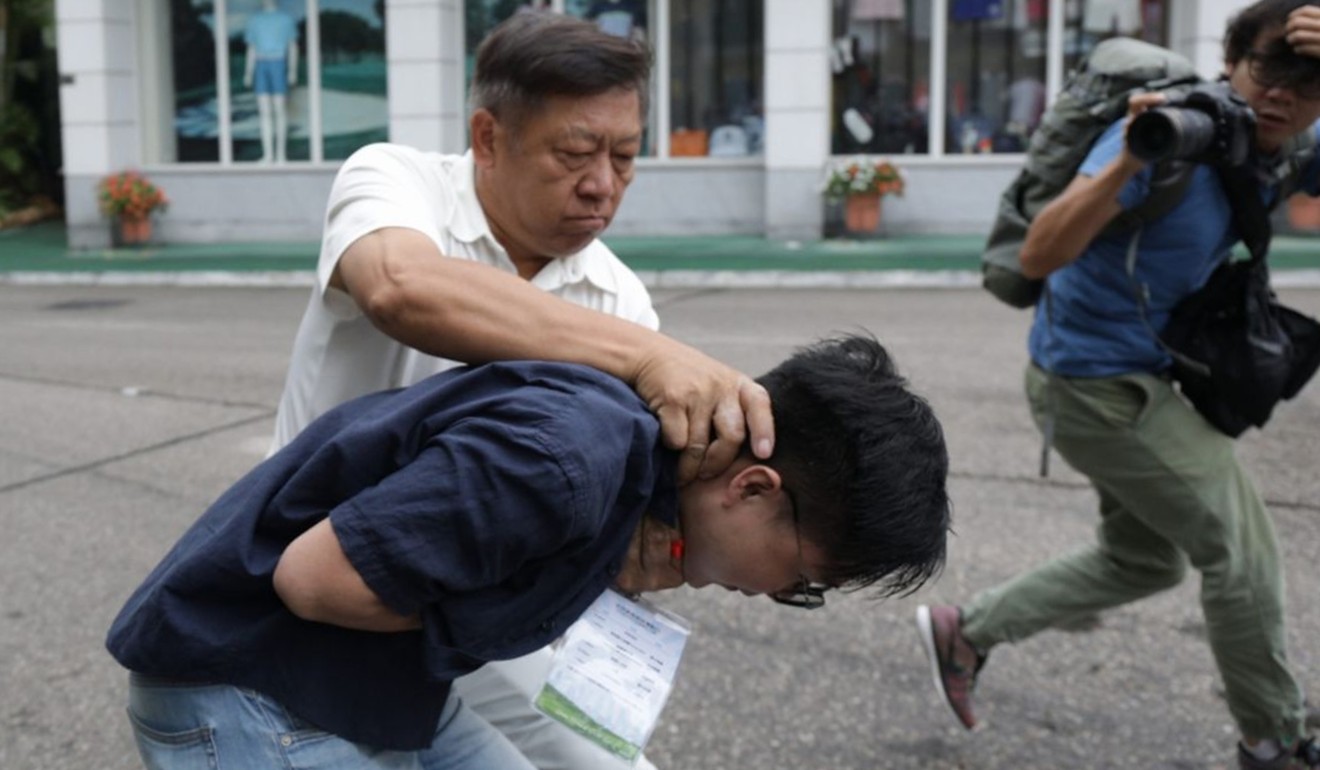
Officials call for ‘rational discussions’ on Hong Kong housing crisis in wake of golf course protest
Chief Secretary Matthew Cheung Kin-chung and Stanley Wong Yuen-fai, chairman of the Task Force on Land Supply, ask members of the public to be open to different opinions
Chief Secretary Matthew Cheung Kin-chung and Stanley Wong Yuen-fai, chairman of the Task Force on Land Supply, urged people to stay open to different opinions expressed during the five-month consultation, which kicked off on Thursday.

The consultation listed 18 options to address the city’s projected shortfall of at least 1,200 hectares (3,000 acres) of land for housing and economic development for the next three decades, including the use of part or all of the 170-hectare Fanling golf course for residential purposes.
As collusion fears rise, Hong Kong land panel chief pledges to keep vested interests out of search for land for new homes
Labour Party member Oscar Lo, who protested outside the golf course to call for the development of the premises on Friday was grabbed by the necked and thrown to the ground by an angry golfer, who was later arrested on suspicion of assault occasioning actual bodily harm. Hong Kong Golf Club, which manages the course, said the golfer was not part of its staff or a member of the club.
Speaking on the sidelines of a public forum on Saturday, Cheung appealed for rationality in the debate.

“Everyone should look at different options rationally and with a peaceful mind. Everyone can participate in discussions and listen to each other. I hope we can have a rational and pragmatical discussion,” he said.
And on a Commercial Radio programme on Saturday morning, Wong said: “We hope different stakeholders, including those affected and those with a direct interest, can remain open and tolerant, and express their opinions on all options – not only those directly concerning them – from a rather balanced and rational perspective.”
Meanwhile, former head of the Planning Department Ling Kar-kan said the historic and cultural values of the Fanling golf course should not be overlooked.
“The 170-hectare land is home to a large number of well-grown old trees and close to 100 ancient tombs, among which some have a history dating back to the end of the Ming dynasty and the beginning of Qing dynasty,” he said on an RTHK talk show on Saturday.
Ling also opposed to the option of building a residential complex above cargo terminals, saying it was undesirable to put two incongruous land uses on the same piece of land and the idea would not ease much of the acute land shortage problem.
He said authorities could consider relocating the cargo terminals by reclaiming land outside Hong Kong waters at the outskirts of the Pearl River Estuary and merge the city’s operation with neighbouring cities.
Some 100 million tonnes of public waste generated from construction, excavation, renovation, demolition and road works in Hong Kong have been transported to Jiangmen, Guangdong from 2007 to 2016, and helped the mainland city reclaim some 660 hectares of land for an economic development zone, according to Ling.

